Speakers
Confirmed Speakers
This page is under construction and additional information will be added soon.
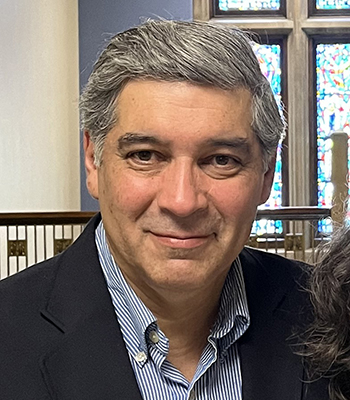
Dr. Claudio Aguilar
Department of Biological Sciences
Purdue University
Dr. R. Claudio Aguilar obtained his PhD from the University of Buenos Aires in Immunochemistry and Molecular Endocrinology. He was a Fogarty Postdoctoral fellow at the National Institutes Health and Associate Research Scientist in the Department of Biology, The Johns Hopkins University. Currently, Dr. Aguilar serves as Professor and Showalter Faculty Scholar in the Department of Biological Sciences at Purdue University. Dr. Aguilar is interested in the cellular impact of Lowe syndrome-causing mutations and in the development of therapeutic approaches aimed at reverting such phenotypes.
Lowe Syndrome: Molecular Basis for Personalized Treatment Approaches

Dr. Robert L. Nussbaum, was the Chief Medical Officer of Invitae, a genetic information and diagnostic company. He is board-certified in internal medicine, clinical genetics, and clinical molecular genetics, and is a Fellow of the American College of Physicians and the American College of Medical Genetics and Genomics. He was the Holly Smith Professor of Medicine at UCSF, Chief of the Division of Genomic Medicine, and Medical Director of both the Cancer Risk Program and the UCSF Program in Cardiovascular Genetics. His research is a pioneer in the field and among multiple achievements, Dr. Nussbaum is credited with identifying mutations in the OCRL1 gene as causative of Lowe syndrome.
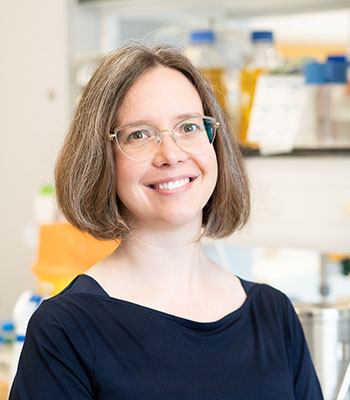
Dr. Jenny Gallop
Gurdon Institute and Department of Biochemistry
University of Cambridge
Dr. Jennifer Gallop has a PhD in Cell Biology from the MRC Laboratory of Molecular Biology in Cambridge, UK, with postdoctoral training at Harvard Medical School. Currently leading her own lab at the University of Cambridge. Her interests include actin dynamics regulation and their therapeutic applications.
Alpelisib and alterations in the actin cytoskeleton
The gene mutations in Lowe syndrome affect the activity of OCRL1, a lipid phosphatase enzyme, that in turn causes changes in the composition of cell membranes. We found that the changes in actin and lipid balance that arise from loss of OCRL1 can be partially compensated by intervening with another enzyme in phosphoinositide lipid metabolism, phosphoinositide 3-kinase. We did this using alpelisib, a prescription medicine that is FDA-approved for a specific type of breast cancer and a rare genetic disease called PIK3CA-related overgrowth syndrome. We are working towards:
- understanding the underlying mechanistic basis of the effect of alpelisib on the cytoskeleton;
- determining whether the principles we uncovered apply to neurons as well as kidney cells; and
- a pilot study of alpelisib in Dent 2 disease patients who have OCRL1 mutations that affect the kidneys.
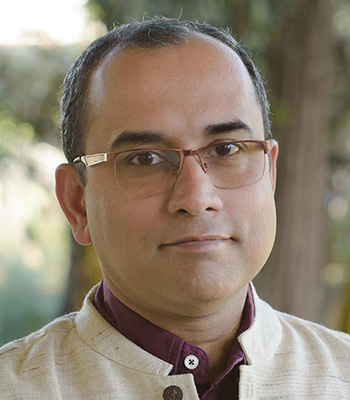
Dr. Raghu Padinjat
National Centre for Biological Sciences-TIFR
Bangalore, India
Dr. Padinjat aims to understand cellular communication strategies mediated by lipid molecules called phosphoinositides, which are generated by different enzymes including the Lowe syndrome protein OCRL1. In particular Dr. Padinjat group focuses on the study the function of phosphoinositides in neuronal cell biology and brain disorders using human genetics and neural cell models in culture derived from the use of induced Pluripotent Stem Cells. The goal of this work is to uncover the function of altered phosphoinositide signaling in controlling neuronal cell biology and changes in these that may underlie human brain disorders.
Control of cell fate specification and physiological maturation in the human brain by the lipid phosphatase OCRL
Human brain development is a tightly coordinated to ensure that developmental cues are transduced into programs of gene transcription and cellular process. Aberrations in these processes lead to neurodevelopmental disorders, characterized by altered brain structure or function at birth or early childhood. Lowe syndrome is a monogenic human neurodevelopmental disorder resulting from mutations in the OCRL1 gene that encodes a lipid phosphatase which regulates levels of the membrane lipid phosphatidylinositol 4,5 bisphosphate (PIP2). PIP2 mediates multiple cellular process including the structure and function of the plasma membrane, vesicular transport, cytoskeletal function, and gene transcription. Using iPSC derived models of human brain development, we find that the development of physiological activity in Lowe syndrome patient derived neural cultures is delayed compared to controls. This phenotype was associated with altered cellular composition and changes in gene transcription. These changes were dependent on the ability of OCRL to regulate PIP2 levels during brain development. Thus, lipid phosphate activity plays a key role in controlling brain development through novel mechanisms.
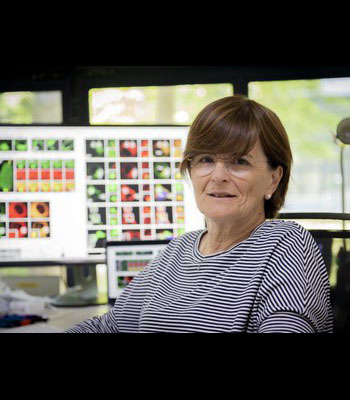
Dr. Antonella DeMatteis
Department of Molecular Medicine and Medical Biotechnology (DMMBM)
University of Naples "Federico II", Italy
Dr. De Matteis is a Full Professor of Biology at the Federico II University of Naples, and a Faculty Member of both the European School of Molecular Medicine (SEMM) and of the Open University PhD Programme in Human Genetics. Her work is focused on the molecular mechanisms controlling intracellular membrane trafficking; indeed, she is currently leading pioneering work on drug repurposing for Lowe syndrome and is initiating the first clinical trial for this condition.
A pipeline for drug repositioning in Lowe Syndrome

Dr. Yang Sun
School of Medicine
Stanford University
Dr. Yang Sun, MD, PhD is an Associate Professor of Ophthalmology at Stanford University. Dr. Sun is interested in glaucoma and cataract development in Lowe syndrome. He is a member of the American Academy of Ophthalmology and board certified by the American Board of Ophthalmology.
Vision preservation in Lowe Syndrome
Lowe syndrome, a rare X-linked multisystem disorder presenting with major abnormalities in the eyes, kidneys, and central nervous system, is caused by mutations in OCRL gene. Encoding an inositol polyphosphate 5-phosphatase, OCRL catalyzes the hydrolysis of PI(4,5)P2 into PI4P. There are no effective targeted treatments for Lowe syndrome. We will present a novel gene therapy for Lowe syndrome in patient fibroblasts using an adenine base editor (ABE) that can efficiently correct pathogenic point mutations. We show that ABE8e-NG-based correction of a disease-causing mutation in a Lowe patient-derived fibroblast line containing R844X mutation in OCRL gene, restores OCRL expression at mRNA and protein levels. We will explore the therapeutic application of ABE for Lowe syndrome.
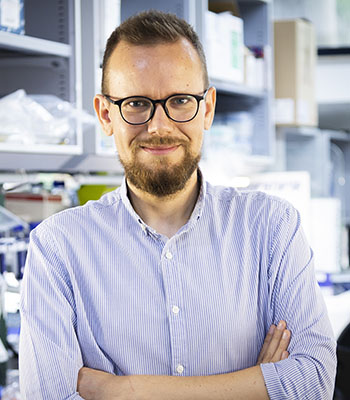
Dr. Leopoldo Staiano
Telethon Institute of Genetics and Medicine
e Institute for Genetic and Biomedical Research at the CNR-Milan, Italy
Dr. Leopoldo Staiano, obtained his PhD from the Veterinary School of Federico II University in Naples, Italy. After joining the De Matteis laboratory at TIGEM, where he worked for 8 years on the cell biology of Lowe Syndrome, Dr. Staiano formed his own group where he focuses on intracellular trafficking and phosphoinositide metabolism in health and disease.
OCRL role in Lipid Droplet Dynamics and Mitochondrial Activity: Implications for the Progression to Chronic Kidney Disease in Lowe Syndrome
Francesca Cervellini, Marialuisa Testa, Salvatore Galiotta, Lidia Caserta, Josephine Salzano, Concetta Mosca, Elena Polishchuk, Sandro Montefusco, Rossella De Cegli, Maria Antonietta De Matteis and Leopoldo Staiano.
Cell lipid metabolism is essential for energy homeostasis, membranes composition and intracellular signalling. Key players in lipid metabolism are the lipid droplets (LD), which are organelles characterised by a core made of neutral lipids and cholesterol esters and a single phospholipidic layer enriched by resident proteins. LDs serve mainly as neutral lipids storage, but as they are highly dynamic, they get multiple contacts with other organelles, involving themselves in protection of the ER from stress, protection of the cell and mitochondria from lipotoxicity and production of ATP and hormones. Fatty acids (FA) in the ER converge to LD, where they are stored, and then they are further metabolised by cytosolic lipases directly on the surface of lipid droplets, by lipophagy or taken directly to peroxisomes and mitochondria by direct contact between the organelles. Disruption of lipid metabolism can lead to severe pathological consequences, as in Lowe syndrome (LS). LS is a rare, x-linked, genetic disease characterized by eye and brain phenotypes as well as kidney tubulopathy. It is caused by mutations in OCRL, that encodes for a phosphatase whose main substrate is the small phosphatidylinositol 4,5-bisphosphate (PI4,5P2). Loss of function of OCRL results in a pathological increase of PI4,5P2 causing endolysosomal dysfunction leading to kidney tubulopathy. LS patients also progress towards chronic kidney disease (CKD) characterized by fibrosis, reduced FA oxidation, and epithelial-mesenchymal transition (EMT). PI4,5P2 is the most abundant of the seven phosphoinositides and needs to be tightly regulated in space and time for the cell to work properly. Here, we show for the first time accumulation of PI4,5P2 on LD in kidney proximal tubule cells depleted of OCRL, as well as accumulation of LDs. Preliminary data show that a pool of the accumulating PI4,5P2 is produced in situ by the PI5P4Kα, with the involvement of the lipid transport protein ORP4. Biogenesis of new LDs is not significantly affected, while their catabolism is highly reduced. LS kidney cells show impaired autophagy, however, a screening of catabolic pathways led to the conclusion that the main LD catabolic pathway in these cells relies on lipolysis and direct contact with peroxisomes and mitochondria. Here we show that in absence of OCRL, LDs cannot contact efficiently peroxisomes and mitochondria, where FA uptake is highly impaired and leading to mitochondrial stress and increased ROS production. Moreover, LD accumulation in Lowe kidney organoids leads to increased fibrosis, a hallmark of CKD, confirming the involvement of Lowe dyslipidaemia in the pathological progression to CKD.
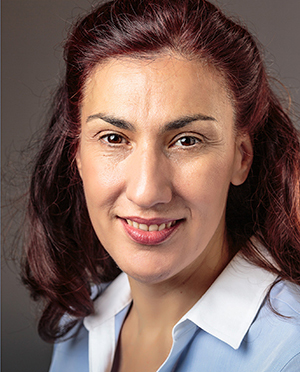
Dr. Peristera Paschou
Department of Biological Sciences
Purdue University
Dr. Paschou is a Professor and Interim Head of Biological Sciences at Purdue University. She is also the Director of Global Partnerships for Purdue College of Science and serves on the leadership team of the Purdue Institute of Integrative Neuroscience . In 2019 she was named Showalter Faculty Scholar in recognition of her achievements in research excellence. Dr Paschou works at the intersection of Data Science and genomics research. She studies human genetic variation around the world aiming to understand the cause of neurological and neuropsychiatric disorders as well as the factors that have shaped human population structure. Dr Paschou obtained her PhD from the University of Athens in Greece. During her graduate studies she also trained at the University of Oxford Welcome Trust Centre for Human Genetics and the Pasteur Institute in Paris. She did her post-doctoral studies at Yale University where she also trained in Clinical Molecular Genetics, receiving certification by the American Board of Medical Genetics. She has held visiting positions at UCSF, UCLA and the National Institutes of Health. Dr Paschou has established and led multiple international collaborative consortia aiming to identify the genetic basis of neurodevelopmental disease through the analysis of large-scale datasets. She led the EU-funded European network for the Study of Tourette Syndrome with participation of 200 investigators from 23 countries. She has served as Chair of the European Society for the Study of Tourette Syndrome , and coordinated TS-EUROTRAIN , a Marie Curie Initial Training Network for Tourette Syndrome. She is currently Co-Chair of the ENIGMA-Tourette Syndrome Working Group , bringing together clinicians, geneticists, neuroimaging experts and data scientists from around the world in order to understand brain structure and function in neuropsychiatric disease. She is currently a PI on an international collaborative NINDS project aiming to analyze more than 12,000 patients with Tourette Syndrome in order to shed light into the genetic architecture of this disorder.
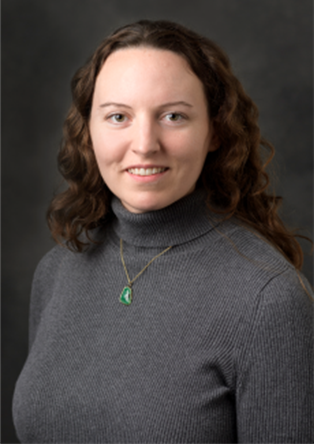
Dr. Lauren Ann Metskas
Department of Biological Sciences
Purdue University
Dr. Laurent Ann Metskas is faculty in the Department of Biological Sciences where she leads a research group focused on understanding the complex organization and coordinated functions of large protein ultrastructures, which are crucial for processes as diverse as viral infection and heartbeat regulation. While the structural dynamics of individual protein monomers in solution are well-studied, their interactions and functionalities within the intricate environments of the cell remain less understood. This knowledge gap is critical for advancing medical therapies and biotechnological innovations.
Dr. Metskas' team employs a range of advanced techniques, including cryo-electron tomography, correlated light and electron microscopy (cryo-CLEM), and fluorescence spectroscopy, to study the role of protein ultrastructures in virus-host interactions and bacterial microcompartment function. Beyond these biological interests, the group pioneers new fluorescence-based approaches for correlated microscopy. By adapting room-temperature fluorescence tools for cryo-electron tomography, they have recently developed a quenching-based fusion assay for cryo conditions. This innovation enables researchers to distinguish between membrane mixing and apposition—two processes that are visually identical in tomography images but fundamentally different in function.
Dr. Christina Ferreira
Bindley Bioscience Center
Purdue University
Dr. Christina Ferreira is an Assistant Research Faculty member and Research Scientist at Purdue University’s Bindley Bioscience Center. Her research specializes in understanding lipid roles within developmental biology, utilizing advanced techniques in shotgun and spatial lipidomics and metabolomics. Dr. Ferreira leads efforts in developing and implementing rapid exploratory methods for spatial metabolomics, driving innovation in lipidomics research.

Dr. Bridgette Kelleher
Department of Psychological Sciences
Purdue University
Dr. Bridgette Kelleher is an associate professor of psychological sciences. She obtained her Ph.D. from the University of South Carolina (2015) after completing her APA-certified clinical residency at the Medical University of South Carolina/Charleston Consortium. Kelleher’s internationally-recognized research program focuses on optimizing clinical outcomes in “high risk” populations, with particular focus on using technology-driven solutions to assess and treat families affected by rare disorders. Her current research addresses three primary questions:
- How can remote technology be used to improve clinical monitoring of children at “high risk” for atypical development, including in the contexts of natural history studies and clinical trials?
- How can remotely collected “real world” data be used to improve personalized interventions?
- How can clinical research better center patient and community perspectives?
Kelleher works with a variety of communities to address these questions, including children with rare neurogenetic syndromes and their families. Her research has been supported through a variety of active research grants funded by the National Institutes of Health, Angelman Syndrome Foundation, Foundation for Prader Willi Research, and Williams Syndrome Association. More information about these and other projects can be found on the Kelleher Lab web site and social media channels.